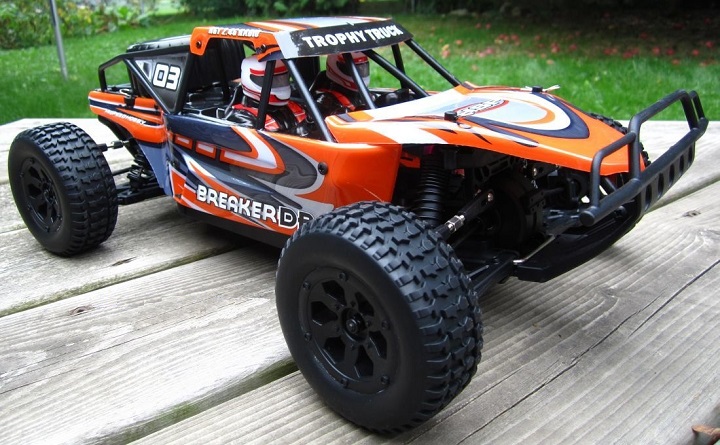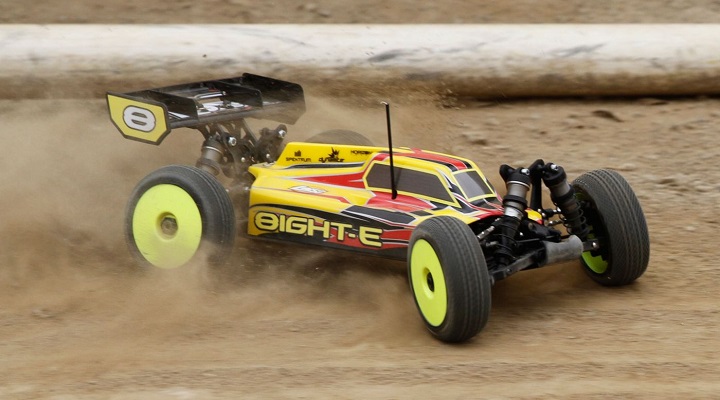If RC vehicles have piqued your interest and you’re looking to get into the hobby but aren’t sure how to get started, you’re at the right place. Building your own RC electric vehicle, having a whizz around the neighborhood or local park, and competing in local races are all great ways to spend your weekend afternoons – you can learn a lot about the world of RC vehicles and get a ton of enjoyment out of it. What many newcomers to the hobby don’t realize, however, is that there are many communities surrounding RC cars in every major city in Australia.

But why would you get into RC electric vehicles? Well, simply because they’re fun. Contrary to what many people think, getting involved in the RC world is more than just playing with a toy around your living room until you ruin it by smashing it against the couch. There are many different types of RC electric vehicles, and the best thing about it is that you can find a model that suits you best and get involved in the RC world in whichever way you want. For instance, if you’re interested in driving around your neighborhood by yourself, and don’t want to get in too deep, just get an electric RC vehicle that comes in a ready-to-run package. On the other hand, you might be interested in the technical aspect of RC vehicles, and you might prefer to build your ideal RC vehicle from scratch.
If you’ve decided to go for a ready-to-run model, as most beginners do, you’ll have to pick between a car, truck, and buggy. All of these different types of RC vehicles come with their own distinct advantages and disadvantages. RC cars are fast and can reach speeds of up to 70 km/h. RC cars can be either on-road, drift or rally, so consider where you’ll be using it before deciding. Generally, all three types of cars are great for racing on flat, hard surfaces. On the other hand, RC trucks are ideal for climbing mountains and racing in the sand. The two most common types of trucks are stadium and monster RC trucks. Depending on what you want to do, you may pick one or the other. Monster trucks are ideal for off-roading, as they’re durable, powerful and heavy-duty – ideal for being bashed into and getting covered in mud. Stadium trucks are stable and tough, and they’re ideal for racing in a stadium or indoors. And RC buggies are jacks of all trades but masters of none. They’re ideal for people who are unsure of what they’ll be spending their time on.

Next, you’ll have to consider the size of the RC car. For the beginner, the sizing system can be a little bit confusing. What does 1/16, 1/10, 1/8, 1/5 even mean? Well, RC cars are scaled relative to the model of the full-size vehicle they represent. This means that an RC truck and RC car, both of which are 1/10 will still differ in size. This is because a full-size truck is larger than a full-size car. 1/5 models are usually the largest ones, and 1/16 are the smallest ones. The most common scale is 1/10, which is what’s recommended for beginners. This is simply because that 1/10 sized RC vehicles come with a large range of options when it comes to upgrading your engine, motor or other parts.
Further, RC electric vehicles can come with a brushed or brushless motor. While many models come with a built-in motor, if you’re planning on getting serious with RC vehicles, you should have some knowledge about both types of motors. Brushed motors are ideal for beginners, as they use brushes to convert electricity into motion. Although this makes them less powerful, they still offer more than enough power at a better price. Brushless motors are more efficient, as there’s less friction when they operate. This means the RC vehicle will travel with more power and thus faster, but at the price of a higher buying cost. Brushless motors are more durable, simply because there are no brushes to wear out.
Lastly, you’ll have to decide whether you want a 4WD or a 2WD RC vehicle. 2WD vehicles are ideal for beginners, as they’re cheaper, easier to build and maintain, and even though they’re slower, they’re more durable. 4WD vehicles, although more difficult to drive, once you’ve mastered them, are more stable and more aggressive. They provide you with an out of control feeling that many RC enthusiasts love. They’re more powerful, require less precision and control, but provide a more thrilling driving experience. My advice is to go for a 2WD model first, then upgrade to a 4WD model once you’re comfortable driving around with the 2WD one.